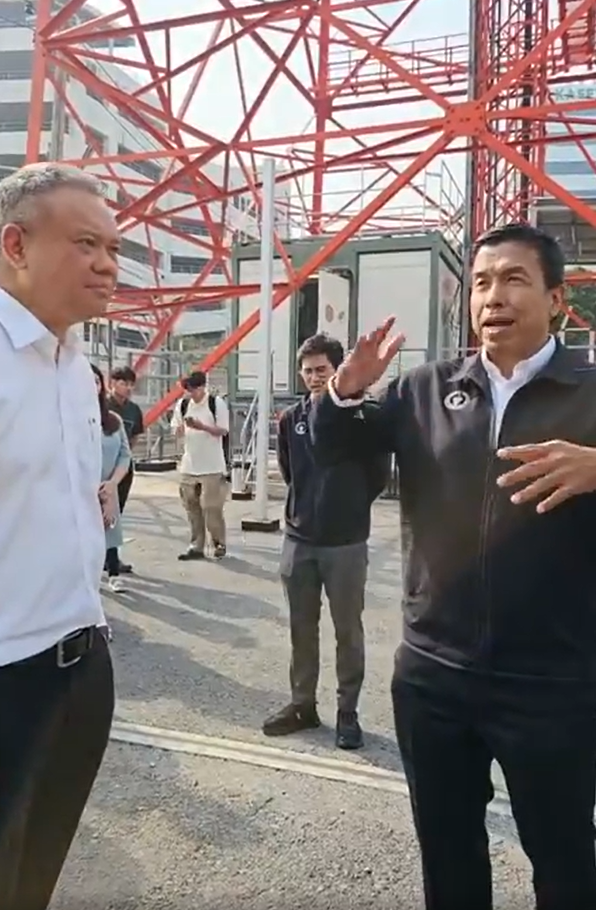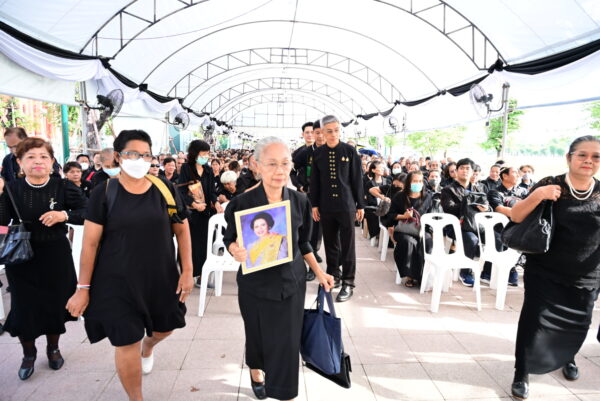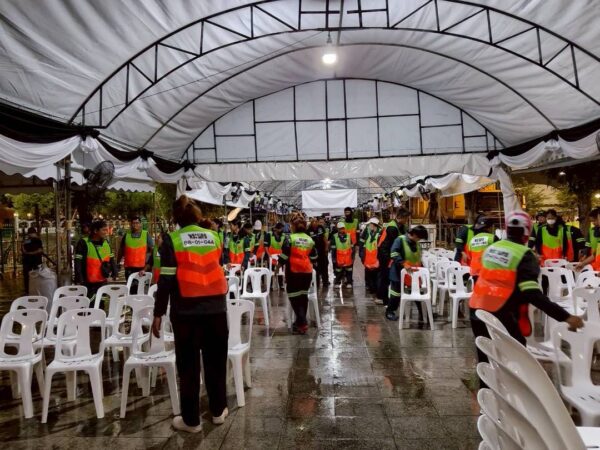On January 23, 2025, Governor of Bangkok, Mr. Chadchart Sittipunt, accompanied by Mr. Pornprom Vikitsreth, Adviser to Governor of Bangkok and Chief Sustainability Officer, visited the Meteorological and Air Pollutants Observation Tower (KU TOWER) to monitor the PM2.5 pollution situation in Bangkok. The delegation was welcomed by Assoc. Prof. Dr. Surat Bualert, a professor from the Faculty of Environment at Kasetsart University (KU), who provided an overview of the tower’s operations.

Assoc. Prof. Dr. Surat explained that Kasetsart University has been researching to identify the origins of PM2.5 and its causes. This research has been shared with the BMA to support decision-making on measures to address the issue.
The KU TOWER, a 117-meter-tall structure, collects meteorological and air pollutant data near the ground at five levels: 10, 30, 50, 75, and 110 meters. The tower continuously measures PM2.5 levels at three heights, enabling researchers to analyze the sources of pollutants and their chemical composition to determine their origins, such as human activities or biomass burning.
Dr. Surat attributed the current rise in PM2.5 levels to cold weather, which causes heavier air to sink and compress the atmospheric layer, trapping pollutants. Local activities, such as traffic and other emissions, contribute to the concentration of PM2.5. While Bangkok’s baseline PM2.5 levels generally range from 50–60 micrograms per cubic meter, higher readings indicate the influx of external pollutants, often from biomass burning outside the city.
Dr. Surat emphasized that tackling PM2.5 requires addressing local sources, particularly vehicle emissions, while simultaneously utilizing forecasting tools to issue timely warnings.
Governor Chadchart noted that the BMA has implemented proactive measures such as Work From Home (WFH) initiatives and the Low Emission Zone (LEZ) policy to limit high-pollution vehicles in the city. However, banning all vehicles is not feasible due to economic impacts. Instead, the BMA encourages compliance through incentives like the Green List registration for vehicles meeting environmental standards, monitored via CCTV and AI technology.
Since the LEZ policy was enforced, over 700 six-wheel trucks that were not on the Green List were detected violating the Ratchadaphisek Ring Road restriction. Legal action will be taken against offenders.
Governor Chadchart engaged with KU faculty and students on potential solutions. While some suggestions, such as removing old vehicles from circulation and banning open burning in other provinces and neighboring countries, require national-level policies, the BMA continues to implement local measures. These include public warnings and utilizing agricultural waste, such as compressing rice straw to prevent field burning.
The governor encouraged students to pursue careers in environmental science, emphasizing their role in solving critical issues. “You are our hope. Keep working hard and applying science to find solutions. I extend my gratitude to the professors for their invaluable support, and I expect the situation to improve by Saturday (January 25),” Governor Chadchart concluded, addressing the KU team and viewers during a live broadcast.
dust #BKK #BMA



